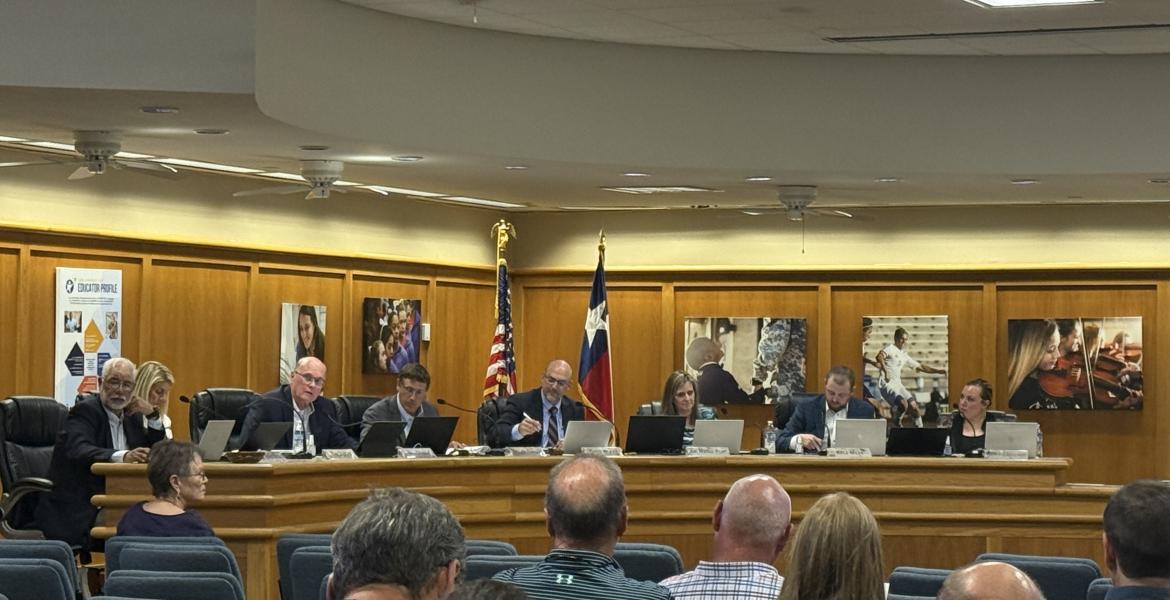WASHINGTON, DC — Today, the House of Representatives passed the bipartisan, bicameral Aviator Cancer Examination Study (ACES) Act, seeking to lower military aviation cancer rates by voice following its unanimous passage in the Senate last month.
Representative August Pfluger (TX-11), Colonel in the U.S. Air Force Reserve, and Representative Jimmy Panetta (CA-19), a veteran of the U.S. Naval Reserve, led the ACES Act together in the House. Senator Mark Kelly (D-AZ) and Senator Tom Cotton (R-AK), both veterans and members of the Senate Armed Services Committee, championed the Senate version of the bill that passed the House today.
Prior to its passage, Rep. Pfluger delivered remarks on the House floor in support of the legislation.
Watch his full remarks here.
“The ACES Act is my top priority in Congress, and I'm proud that we are now one step closer to making it law," said Rep. Pfluger. "This bill is deeply personal as it is in honor of my dear friend and former fighter pilot, Colonel Shurtleff, who recently lost his life in a second battle he never signed up to fight. The ACES Act is more than just a bill—it's a lifeline and a message to every pilot who has ever put on the uniform to protect our skies that we will fight to protect them in return. We owe our service members nothing less. I look forward to seeing President Trump sign this critical legislation into law."
“Many veterans face serious health risks, including increased rates of cancer potentially linked to their time in the cockpit,” said Rep. Panetta. “With the final passage of the ACES Act out of the House, this legislation is now on its way to becoming law to get our aviators and their families the answers and care they deserve. This bipartisan achievement reaffirms our commitment to understanding these diagnoses and ensuring that military and VA providers have the data they need to better protect those who’ve served our nation.”
“As a former Navy pilot, there are certain risks that we know and accept come with our service, but we know far less about the health risks that are affecting many aviators and aircrew years later,” said Senator Kelly. “Veteran aviators and aircrew deserve answers about the correlation between their job and cancer risks so we can reduce those risks for future pilots. Getting this across the finish line has been a bipartisan effort from the start, and I’m proud to see this bill on its way to becoming law so we can deliver real answers and accountability for those who served.”
“We owe it to past, present, and future aviators in the armed forces to study the prevalence of cancer among this group of veterans," said Senator Cotton. "I applaud the House for passing this important piece of legislation and look forward to President Trump signing it into law."
Background:
Pilots and aircrews have been found to have a higher risk of developing prostate cancer and melanoma, with possible links to non-Hodgkin lymphoma and testicular cancer.
Earlier this year, Congressman Pfluger, a Colonel in the U.S. Air Force Reserve, introduced the ACES Act alongside Congressman Jimmy Panetta (CA-19), a U.S. Navy Veteran, in the House. Senator Mark Kelly (D-AZ) and Senator Tom Cotton (R-AK), both veterans and members of the Senate Armed Services Committee, introduced companion legislation in the Senate. The ACES Act was introduced in the 117th and 118th Congresses.
The ACES Act directs the Secretary of the VA to study cancer incidences and mortality rates among aviators and aircrews who served in the Navy, Air Force, and Marine Corps. This legislation is critical as it would improve our understanding of the link between military service and cancer risks among Veteran aviators. By better understanding the correlation between aviator service and cancer, we can better assist our military and provide more adequate care for our veterans.
In March, Rep. Pfluger participated in the House Committee on Veterans' Affairs Subcommittee on Disability Assistance and Memorial Affairs legislative hearing on several bills, including Rep. Pfluger's ACES Act. Additionally, Rep. Pfluger's good friend and fellow fighter pilot, Colonel Andy "Pablo" Shurtleff, appeared as a witness to the committee to share his story and explain the need and urgency for the ACES Act. Colonel Shurtleff was diagnosed with an aggressive form of cancer as a result of his service, and recently lost his life in this second battle he never anticipated having to fight. This bill is dedicated to his life and service.
In May, the ACES Act passed the U.S. House of Representatives by a vote of 376-5. Colonel Shurtleff was able to witness this legislation pass through the House before his passing, and Rep. Pfluger intends to get this legislation across the finish line and signed into law in his honor.
In June, the Senate unanimously passed Senator Kelly's version of the ACES Act.
Subscribe to the LIVE! Daily
Required






Comments
Listed By: Rita Repulsa
Damned UAP aliens giving our airpersons cancer. Can't we bomb villages in peace without infernal, cosmic interference? Must the galaxy — the multiverse itself — be so cruelly indifferent to the price of crude oil and gasoline?...
- Log in or register to post comments
PermalinkListed By: Old Buffalo Hunter
Our youngest was a Blackhawk pilot with two tours in Iraq. The standing order was to fly through the burn pit on take off so that the fires would not go out. The bird was filled with toxic smoke on every takeoff.
- Log in or register to post comments
PermalinkPost a comment to this article here: